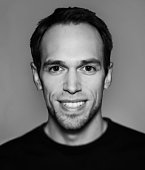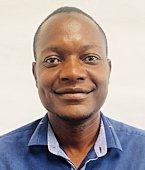This course of the EO AFRICA R&D Facility will take place at the University of Western Cape, Cape Town, South Africa in close collaboration with UNESCO, and the BeResilient program. Applicants with outstanding academic backgrounds and work experience/research work linked to UNESCO-designated biosphere reserves within the Southern African Region will stand a chance to receive full funding, for others partial funding is available (for details see below).
In this course, participants will get an introduction on how to use satellite imagery for the purpose of agricultural drought monitoring at various spatial scales, ranging from continental to field scale. The training will be composed of face-to-face lecturing, providing a solid conceptual background, combined with hands-on exercises in the Python programming language to strengthen your practical skills.
Upon completion of this course, the participant will:
- Be aware of both the advantages and limitations of satellite EO data for the purpose of agricultural drought monitoring.
- Know how to select, access and use the right open-access data and tools for their specific drought monitoring applications.
- Be aware of existing drought monitoring platforms relevant for the African continent.
- Learn how to use coarse resolution satellite data to detect the occurrence of drought events.
- Learn how to determine the impact of drought events on agricultural production at field scale.
- Have practiced the use of open-source software for satellite image processing.
ABOUT THE COURSE
CAN I APPLY?
Who can participate?
Space is limited to max. 25 participants. Participants will be selected on the basis of their academic background, work experience and motivation to participate. If you are selected you will receive a confirmation e-mail with further information by October 9, 2023.
Participants should reside in one of the African countries, should have an academic background related to, Agriculture, Food Security, Ecology or similar, and have knowledge of basic Earth Observation techniques and principles. Young researchers in this field are encouraged to apply!
Speakers:
-

R&D Professional – Agricultural Applications, VITO Remote Sensing
https://remotesensing.vito.be/team/jeroen-degerickx
jeroen.degerickx@vito.be -

-

Project Manager – Agricultural Applications, VITO Remote Sensing
https://remotesensing.vito.be/team/wai-tim-ng
wai-tim.ng@vito.be
Registration:
Schedule
Each day will consist of morning and afternoon sessions with a total duration of 6 hours. The sessions will alternate between lectures providing the theoretical background and practical exercises to get acquainted with data access, download, processing and interpretation.
- Morning session: 9:00 – 12:00, 3 hours
- Lunch break: 12:00 – 13:00
- Afternoon session: 13:00 – 16:00, 3 hours
Certificate of Attendance
All participants who have been actively present during the workshop will be issued a Certificate of Attendance by the EO Africa R&D Facility.
Technical requirements
Participants are requested to bring their own (updated) laptop.
It is strongly advised that the participants follow the first 2 On-line courses of the EO AFRICA R&D Space Academy ("Cloud Computing and Algorithms for EO Analyses" and "Principles of and advances in Earth Observation"). Participants will get access upon acceptance for this Face to Face course – or can self-enroll already at:
- EO AFRICA – Cloud Computing for EO Analyses
- EO AFRICA – Principles of and advances in EO (optical and SAR)
(please note that registering is needed)
Cost
Attendance to the training course is free of charge. Lunch will be provided during the workshop.
Applicants with outstanding academic backgrounds and work experience/research work linked to UNESCO-designated biosphere reserves within the Southern African Region will stand a chance to receive full funding. The applicants who wish to receive this sponsorship will need to highlight the Biosphere Reserve they are linked with.
Other participants will need to arrange and pay for their own travel, subsistence and accommodation.
For those not residing in Cape Town the Facility can sponsor up to EUR 200 to cover such expenses. Should you want to apply for this funding, please indicate it in the application form. Payment of the 200 Euro (max) will go via bank transfer and will be arranged after completion of the workshop. Only participants not studying at University of the West Cape are eligible for sponsorship.
October 9 or just thereafter applicants will be informed on acceptance and sponsorship.
